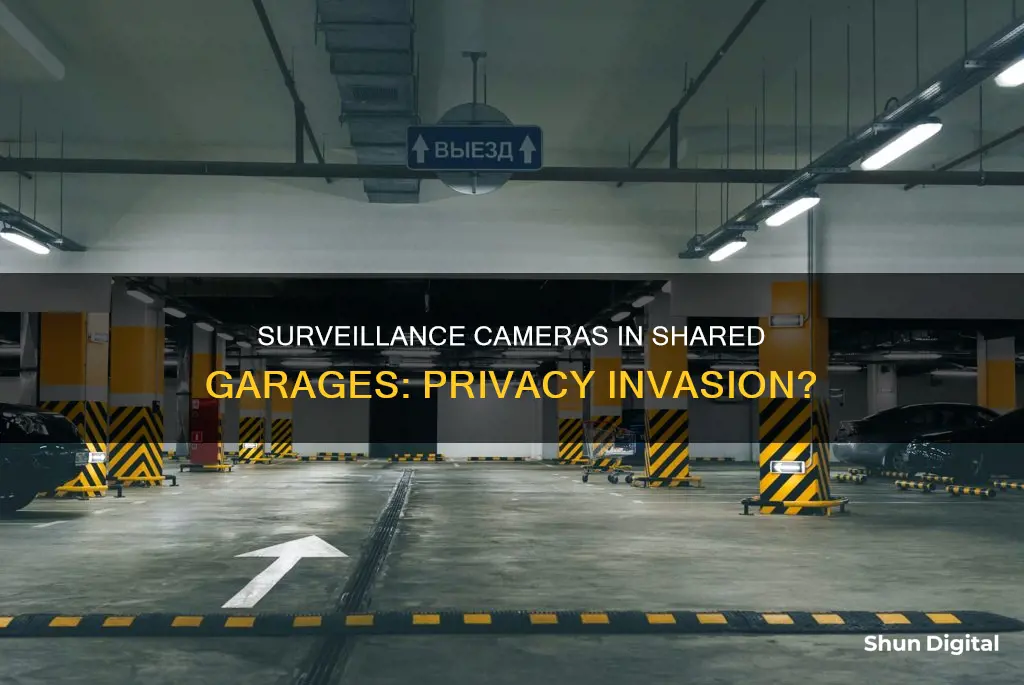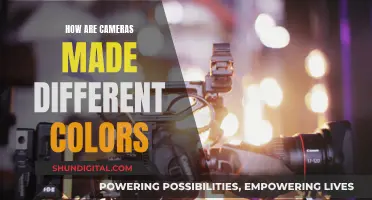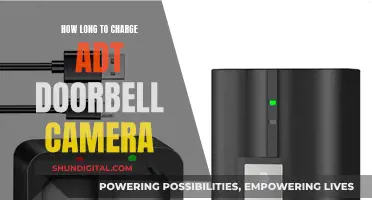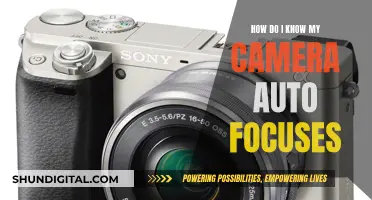
The use of surveillance cameras has sparked a debate about safety versus privacy. While some argue that surveillance cameras are necessary for security and protection, others raise concerns about the invasion of personal privacy. Surveillance cameras can capture sensitive information and invade personal space, especially in private areas such as bedrooms and bathrooms. The legality of surveillance cameras varies across different states and counties, with some requiring consent for installation in private spaces. To address privacy concerns, measures such as encryption, secure storage of footage, and clear signage indicating the presence of cameras can be implemented. Additionally, ethical considerations are crucial to ensure that individuals' rights are respected while maintaining necessary protection levels. As technology advances, ongoing discussions and regulations are essential to protect privacy rights and maintain public safety.
| Characteristics | Values |
|---|---|
| Legality of surveillance cameras | There are no specific federal laws governing the use of security cameras, but there are national consent and privacy laws that apply to video surveillance. |
| Privacy concerns | Surveillance cameras can invade personal space and capture sensitive information. |
| Ethical considerations | Surveillance technology must respect individuals' rights while maintaining necessary protection levels for people and property. |
| Security benefits | Surveillance cameras can enhance safety and deter criminal activity. |
| Privacy safeguards | Secure storage of footage, clear signage, and obtaining consent can help address privacy concerns. |
| State-specific laws | Some states have specific laws regarding security cameras, such as California, Georgia, Florida, Alabama, and Minnesota. |
What You'll Learn

Privacy laws and consent
While there is no specific federal law governing the use of security cameras, there are national consent and privacy laws that apply to video surveillance. In the US, it is usually legal to install a residential security camera and record video. However, citizens are also guaranteed a reasonable expectation of privacy, which extends to video recording. This means that you cannot record people in private places, such as the bathroom, and you have the right not to be filmed in those areas as well.
Consent laws govern whether or not it is legal to record someone on video or audio without their permission. At the national level, it is legal to record a conversation, either in person or over the phone, if you have the consent of at least one person involved. This is called the "one-party consent" law. While this law does not cover video surveillance, it does apply if the security camera records audio as well as video. Some states have stricter "all-party consent" laws, which require the consent of all parties involved in a conversation for it to be recorded.
In the context of shared garages, security cameras can be installed as long as they are placed in common areas and do not violate the reasonable expectation of privacy of the tenants. For example, cameras should not be placed in areas such as bedrooms or bathrooms, where privacy is expected. Additionally, tenants should be informed about the presence of security cameras and the areas they cover. While posting signage indicating surveillance cameras is not legally required, it can enhance security and deter potential intruders.
To comply with privacy laws and consent, it is important to consider the placement of security cameras in shared garages. Cameras should be positioned in a way that does not invade the privacy of individuals using the garage. This includes avoiding areas where individuals have a reasonable expectation of privacy, such as private spaces within the garage. Informing tenants or users of the garage about the presence of security cameras and obtaining their consent, especially for audio recording, is also crucial.
Master Madden 10: Camera Angle Tricks
You may want to see also

Ethical considerations
The use of surveillance cameras in shared garages raises ethical concerns regarding the balance between security and privacy rights. While these cameras can enhance safety and deter criminal activity, they also have the potential to invade personal space and capture sensitive information. Here are some key ethical considerations to keep in mind:
Respecting Privacy Rights
It is crucial to respect the privacy rights of individuals who use the shared garage. This includes avoiding the installation of cameras in areas where privacy is expected, such as private offices, bedrooms, or bathrooms. Respecting privacy also entails obtaining consent when necessary, especially in shared or public spaces.
Secure Storage and Access Control
To protect the privacy of individuals captured on camera, it is essential to securely store the footage and limit access only to authorised personnel. Regularly reviewing and deleting unnecessary recordings can also help minimise the storage of personal information.
Clear Signage and Transparency
Ethical deployment of surveillance technology involves clearly displaying signs that inform individuals about the presence of cameras and their potential to be recorded. This transparency allows individuals to make informed choices and maintain a sense of agency.
Compliance with Privacy Laws and Regulations
Familiarising oneself with the legal requirements regarding video surveillance in the relevant jurisdiction is essential. Privacy laws and regulations can vary significantly, and non-compliance can result in legal consequences. Understanding and adhering to these laws will help ensure that the surveillance technology is used responsibly and within ethical boundaries.
Data Protection and Encryption
To safeguard the personal data captured by surveillance cameras, employing data encryption and password protection techniques is crucial. Regularly updating camera firmware and implementing safeguards against tampering can also help prevent unauthorised access and protect the privacy of individuals.
Striking a Balance
Finding a middle ground between security and privacy is a delicate task. While safety and crime deterrence are valid arguments for camera usage, they must be weighed against potential infringements on personal privacy. Ethical considerations should drive the decision-making process to ensure that any monitoring is done responsibly and respects the rights of individuals.
Harford, Maryland: Fighting Unfair Camera Tickets
You may want to see also

Balancing security and privacy
Security cameras are a double-edged sword – they can enhance safety and deter crime, but they also have the potential to invade personal space and capture sensitive information. So, how can we balance security and privacy?
Firstly, it's important to be aware of the relevant laws and regulations regarding security cameras and privacy, as these can vary from state to state in the US. Generally, it's illegal to install surveillance cameras in private spaces without consent, and even in public spaces, careful consideration of legal rights and implications is necessary.
One way to strike a balance is by implementing privacy safeguards when using security cameras. This can include ensuring that video footage is securely stored and only accessible to authorised personnel, using clear signage to indicate the presence of cameras, and obtaining consent from those who may be affected by the surveillance.
Another key consideration is the placement of cameras. When installing outdoor cameras, it's crucial to avoid capturing private spaces such as bedrooms or bathrooms of neighbouring properties.
Additionally, ethical implications must be taken into account. The collection of video footage, especially in public spaces, raises questions about an individual's right to be free from constant surveillance. There are also concerns about the potential misuse or abuse of recorded footage.
In conclusion, finding a middle ground between security and privacy requires a combination of legal compliance, privacy safeguards, ethical considerations, and responsible placement of cameras. By addressing these factors, we can ensure that security cameras are used responsibly while maintaining a balance between safety and confidentiality.
US Surveillance: Cameras Everywhere, Privacy Nowhere?
You may want to see also

Privacy safeguards
Privacy is a complex issue when it comes to surveillance cameras, and while they can enhance safety, they also have the potential to invade personal space. To address these concerns, several privacy safeguards can be implemented when using surveillance cameras in shared garages or other shared spaces.
Firstly, it is essential to adhere to privacy laws and regulations. Familiarize yourself with the legal requirements regarding video surveillance in your area to avoid any potential violations. The laws governing surveillance cameras vary from state to state in the US, so it is crucial to understand the specific regulations applicable to your location.
Secondly, limit camera coverage to necessary areas. Avoid placing security cameras in spaces where privacy is expected, such as bedrooms, bathrooms, or private offices. This is especially important in shared garages, where individuals may have different expectations of privacy. Ensure that the cameras are positioned to capture only the necessary areas for security purposes and do not infringe on private spaces.
Thirdly, use clear signage to indicate the presence of security cameras. Clearly displaying signs will inform individuals that they are under surveillance and may be recorded. This is a common practice in businesses, but it is also recommended for private residences, especially in shared spaces like garages, to obtain informed consent.
Obtaining consent is another crucial safeguard. If you are installing security cameras in a shared garage or other public space, obtain consent from those who may be affected by the surveillance. Inform your neighbours or anyone using the shared space about the cameras and their purpose, and address any privacy concerns they may have.
Additionally, ensure secure camera footage. Implement measures to protect the recorded footage by storing it securely and making it accessible only to authorized personnel. Regularly review and delete unnecessary recordings to minimize the storage of personal information. Utilize strong passwords and encryption protocols to prevent unauthorized access to camera feeds and recordings.
Finally, regularly update camera firmware to address vulnerabilities. Keep security cameras up to date with the latest firmware patches to maintain the security of the system and protect the privacy of those under surveillance.
By implementing these privacy safeguards, you can help address concerns about the invasion of privacy and ensure that the surveillance cameras in shared garages are used responsibly and within legal boundaries.
Focusing on Self-Portraits: Camera Settings for Sharp Selfies
You may want to see also

Privacy concerns
Legal Considerations:
The legality of surveillance cameras in shared garages can vary depending on the jurisdiction. In the US, there is no specific federal law governing the use of security cameras, but national privacy and consent laws apply to video surveillance. Additionally, individual states, counties, and cities may have their own regulations. It is crucial to familiarize yourself with the legal requirements in your specific area to ensure compliance.
Invasion of Personal Space:
Surveillance cameras can potentially invade personal space and capture sensitive information. This is particularly true if the cameras are installed in private spaces, such as bedrooms or bathrooms, without the consent of the individuals using the shared garage. The general consensus is that video surveillance in private spaces without consent is usually not legal and can be considered an invasion of privacy.
Visibility and Signage:
The placement and visibility of security cameras in shared garages can also raise privacy concerns. Cameras should be positioned to avoid capturing private spaces in neighbouring properties. Clear signage indicating the presence of security cameras should also be displayed to inform individuals that they are under surveillance.
Data Protection:
The data collected by surveillance cameras, such as audio and video recordings, can be sensitive and personally identifiable. It is essential to securely store and protect this data from unauthorized access or misuse. Regularly reviewing and deleting unnecessary recordings can help minimize the storage of personal information. Additionally, employing data encryption and password protection can enhance the security of the collected data.
Ethical Implications:
The use of surveillance cameras in shared garages also carries ethical implications. While these devices can provide a sense of safety, they raise concerns about constant monitoring and the potential infringement on an individual's right to privacy. It is crucial to strike a balance between security needs and protecting individuals' privacy rights, ensuring that any monitoring is done responsibly and within legal boundaries.
Camera Charger Problems: De-A11 Edition
You may want to see also
Frequently asked questions
Surveillance cameras can be seen as an invasion of privacy if they are placed in areas where privacy is expected, such as bedrooms or bathrooms. If the shared garage is considered a private space, then installing a surveillance camera without the consent of all parties involved could be considered a violation of privacy.
The legality of surveillance cameras in shared garages varies depending on the jurisdiction and specific circumstances. In general, it is important to obtain consent when recording in private areas and to avoid any form of unauthorized surveillance.
To respect privacy while using surveillance cameras in shared garages, it is recommended to obtain consent from all users of the space, ensure proper signage indicating the presence of cameras, and limit camera coverage to necessary areas that do not infringe on private spaces.







